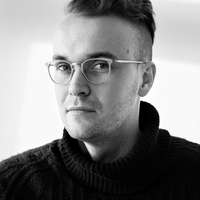Ville Louekari - Profile on Academia.edu (original) (raw)

Doctoral student at EuroStorie CoE (Centre of Excellence in Law, Identity and the European Narratives) at University of Helsinki
MA in Modern European Philosophy (Distinction), in CRMEP (Centre for Research in Modern European Philosophy), 2017-18
B.A. In University of Helsinki in Social and Moral Philosophy
Address: Helsinki, Uusimaa, Finland
less
Related Authors
Uploads
Papers by Ville Louekari
Tiede & Edistys, 2025
Artikkeli käsittelee fasismin kulttuurista sisältöä saksalaisjuutalaisen filosofin Ernst Blochin ... more Artikkeli käsittelee fasismin kulttuurista sisältöä saksalaisjuutalaisen filosofin Ernst Blochin esseiden pohjalta. Blochin kirjoitukset auttavat ymmärtämään historiallisen fasismin utooppista ideologiaa. Sotienvälisen saksalaisen kriittisen teorian kontekstissa Bloch tarjoaa poikkeavan selityk-sen fasismin nousulle, korostaen fasismin kulttuurista puolta ja ottaen tosissaan fasistisen utopian vie-hätyksen. Esitän, että Blochin keskittyminen kulttuurisiin seikkoihin liittyy hänen ajallisuuden filoso-fiaansa sekä luonnonfilosofiaan. Fasismi sekä omii ajallisesti vanhentuneita käsitteitä, kuten kolmas valtakunta, että rakentaa niiden pohjalta utopiaa, jossa ihmisen ja luonnon suhde on palautettu alku-peräiseen tilaansa.
The aim of the present dissertation is to offer a new reading of the role of the body in Hegel’s ... more The aim of the present dissertation is to offer a new reading of the role of the body in Hegel’s Phenomenology of Spirit. I will focus on passage §312, which immediately precedes the discussion on Physiognomy and Phrenology. I will read this passage in the context of the chapter on Reason. The idea of Reason is, I argue, to search for an organic whole, a shape (Gestalt) in nature. A self-developing, independent Gestalt is found instead in the human body. I will analyse how the human body, however, fails as a Gestalt, and how this failure is at the same time a failure of an organicist world-view.
The challenge will be to analyse the nature of the Hegelian body, while recognizing that Hegel himself does not analyse it further. I will ask if the Hegelian body is that of psychoanalysis, by referring to Lacan’s theory of the formative function of the Gestalt of the body. I claim that the Hegelian body is similar but ultimately incompatible with the Lacanian one. I will find a striking similarity however with Deleuze’s and Guattari’s idea of a body without organs. I will look at the Hegelian body through the analysis of bodies without organs in A Thousand Plateaus.
Finally, the ambition will be to problematize Deleuze’s and Guattari’s idea of a body without organs by seeing it all too compatible with Hegel’s analysis of the phrenologist’s body. I will also argue that Hegel’s analysis of the human body in §312 has an important historical dimension, which we have to take into account when we discuss the ethics of a bodies without organs on the one hand, and the nature of the Hegelian body on the other.
Tiede & Edistys, 2025
Artikkeli käsittelee fasismin kulttuurista sisältöä saksalaisjuutalaisen filosofin Ernst Blochin ... more Artikkeli käsittelee fasismin kulttuurista sisältöä saksalaisjuutalaisen filosofin Ernst Blochin esseiden pohjalta. Blochin kirjoitukset auttavat ymmärtämään historiallisen fasismin utooppista ideologiaa. Sotienvälisen saksalaisen kriittisen teorian kontekstissa Bloch tarjoaa poikkeavan selityk-sen fasismin nousulle, korostaen fasismin kulttuurista puolta ja ottaen tosissaan fasistisen utopian vie-hätyksen. Esitän, että Blochin keskittyminen kulttuurisiin seikkoihin liittyy hänen ajallisuuden filoso-fiaansa sekä luonnonfilosofiaan. Fasismi sekä omii ajallisesti vanhentuneita käsitteitä, kuten kolmas valtakunta, että rakentaa niiden pohjalta utopiaa, jossa ihmisen ja luonnon suhde on palautettu alku-peräiseen tilaansa.
The aim of the present dissertation is to offer a new reading of the role of the body in Hegel’s ... more The aim of the present dissertation is to offer a new reading of the role of the body in Hegel’s Phenomenology of Spirit. I will focus on passage §312, which immediately precedes the discussion on Physiognomy and Phrenology. I will read this passage in the context of the chapter on Reason. The idea of Reason is, I argue, to search for an organic whole, a shape (Gestalt) in nature. A self-developing, independent Gestalt is found instead in the human body. I will analyse how the human body, however, fails as a Gestalt, and how this failure is at the same time a failure of an organicist world-view.
The challenge will be to analyse the nature of the Hegelian body, while recognizing that Hegel himself does not analyse it further. I will ask if the Hegelian body is that of psychoanalysis, by referring to Lacan’s theory of the formative function of the Gestalt of the body. I claim that the Hegelian body is similar but ultimately incompatible with the Lacanian one. I will find a striking similarity however with Deleuze’s and Guattari’s idea of a body without organs. I will look at the Hegelian body through the analysis of bodies without organs in A Thousand Plateaus.
Finally, the ambition will be to problematize Deleuze’s and Guattari’s idea of a body without organs by seeing it all too compatible with Hegel’s analysis of the phrenologist’s body. I will also argue that Hegel’s analysis of the human body in §312 has an important historical dimension, which we have to take into account when we discuss the ethics of a bodies without organs on the one hand, and the nature of the Hegelian body on the other.











